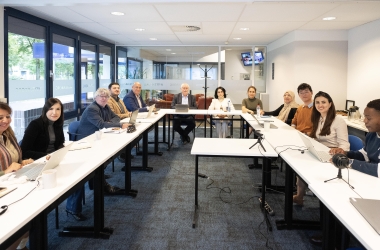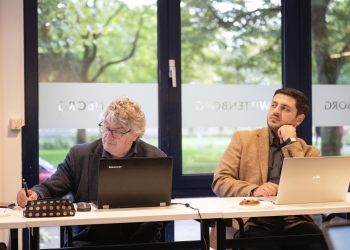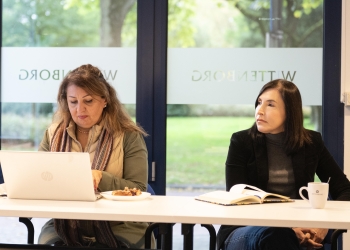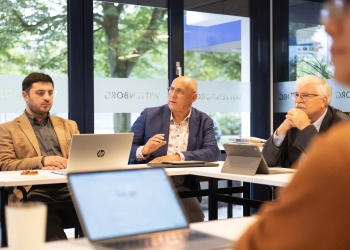Wittenborg Online News!
Research Centre Kick-Off Meeting Outlines Plans for New Academic Year
Research Centre Kick-Off Meeting Outlines Plans for New Academic Year

Research Centre Kick-Off Meeting Outlines Plans for New Academic Year
Wittenborg Research Centre Outlines Strategic Focus and New Initiatives for 2024-202
The first meeting of Wittenborg's Research Centre for the academic year 2024-2025 was held on 9 October, gathering faculty and staff for insightful discussions on future initiatives. This hybrid event took place at Brinklaan and online, allowing for a broad participation.
Dr Ron Tuninga, Wittenborg’s newly appointed rector, opened the meeting with a warm welcome and emphasised the need for strategic adjustments to prepare for the Association to Advance Collegiate Schools of Business (AACSB) accreditation. “While accreditation is important, we must also focus on enhancing the effectiveness of the Research Centre and assessing the progress of our educational programmes,” he stated.
The agenda featured a comprehensive evaluation of the 2024 Globalisation Conference, presented by Dr Dennis von Bergh, who is a scientist, officer, veteran, diplomat and manager. He shared key insights and feedback from the event, drawing on his extensive experience to highlight opportunities for growth and collaboration. Following this, Professor Ad Kil also spoke about the second Globalisation Conference, planned for 2025.
Aydan Holtrigter, the Research Centre Manager, provided an exciting update regarding international teaching mobility for faculty. She announced that Wittenborg has secured several grants from the European Commission to support these initiatives, underscoring the importance of internationalisation in the business school's mission. Holtrigter explained that while minimum requirements exist to qualify for Erasmus partnerships - such as having an Erasmus segmentation - faculty are encouraged to actively pursue potential partner universities. Once identified, they should consult with the Research Centre to confirm eligibility.
The new mobility programme offers short teaching assignments of at least eight hours, with the possibility of extending up to 40 hours for a full week of teaching. This initiative aims to enrich faculty experience and foster international collaboration.
Holtrigter outlined two types of grants available to support mobility: one for European countries, including selected non-EU nations like Norway, Turkey and Liechtenstein, and another specifically targeting Georgia and Azerbaijan. While this initiative will primarily focus on teaching mobility, it will also consider opportunities for professional staff. Further details regarding this policy will be communicated to faculty in the coming weeks as it is finalised.
WUP 29/10/2024
by Erene Roux
©WUAS Press



386 words